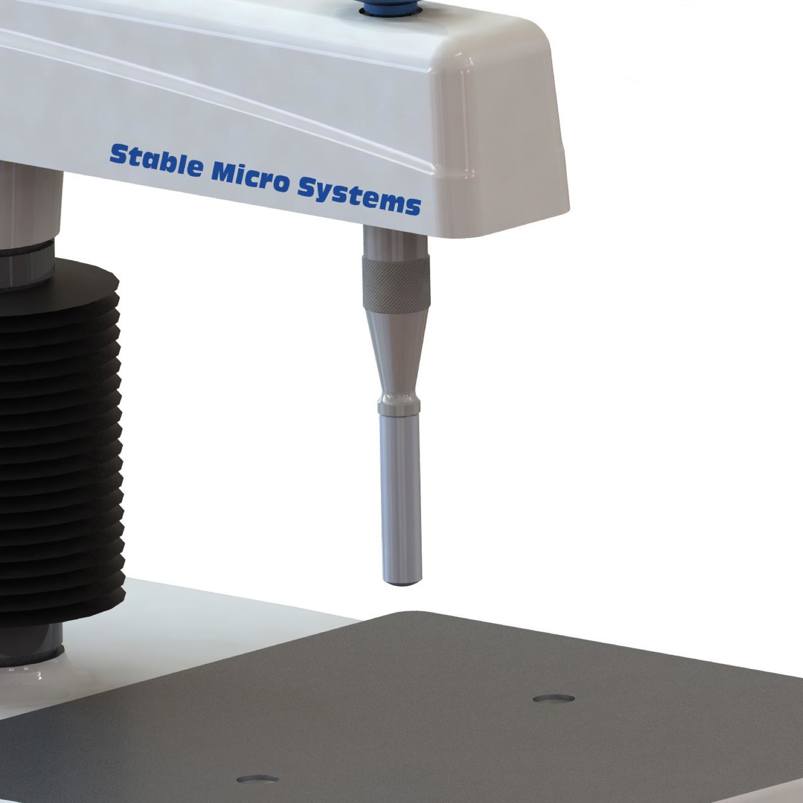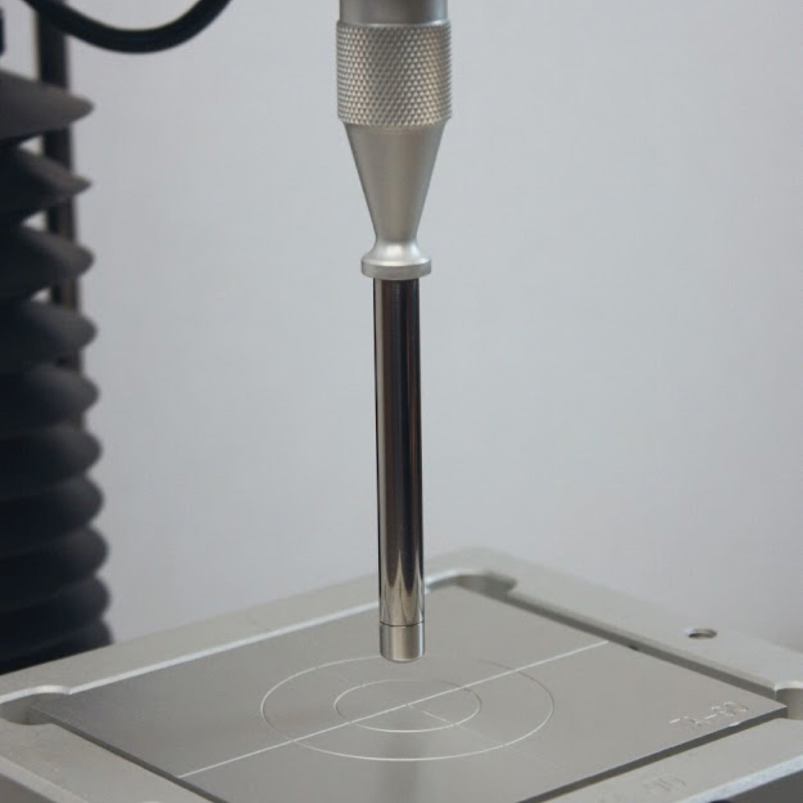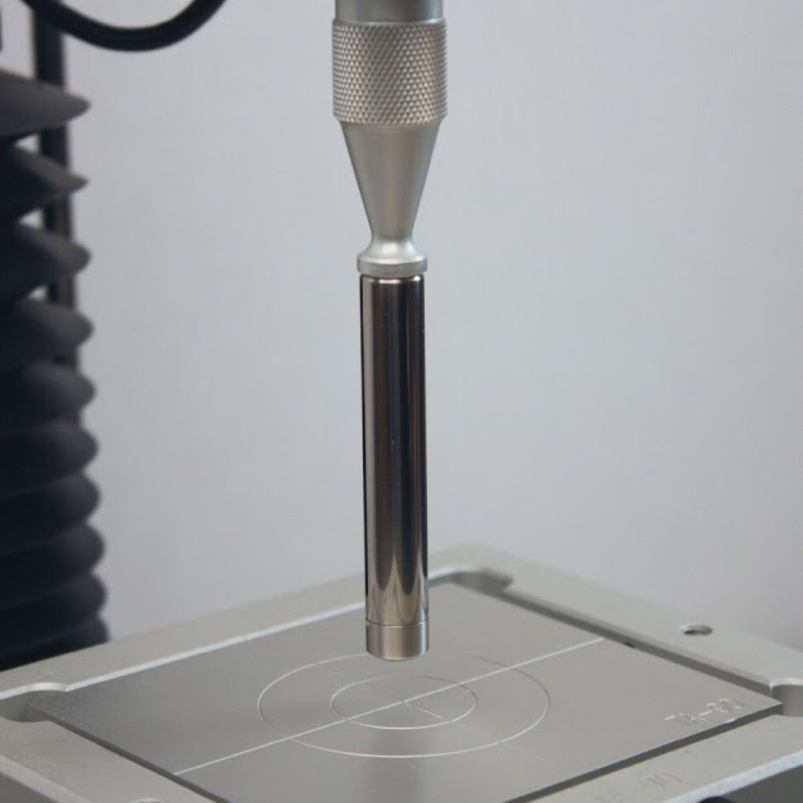Product overview
Magnus-Taylor probes are a traditional testing method when used in the context of fruit testing. They aim to measure the firmness or softness of fruits which can provide valuable information about ripeness and other quality-related attributes. Probes are 7.95mm and 11.11mm and have a domed testing surface.
How does the Magnus Taylor Probes work?
Ideal sample form
Solid material
Benefits and limitations
- Correlation with quality: The firmness measured by the probe often correlates with ripeness and other quality parameters, aiding in quality control.
- Surface variability: The reading can be affected by the specific spot tested on the fruit, as fruits might have non-uniform ripeness or structural inconsistencies.
- Sample variability: Individual fruits within a batch might have varying firmness levels, leading to potential inaccuracies when generalising results.
- Handling sensitivity: The way the fruit is held, the angle of probe insertion, and the depth can all affect readings, requiring a standardised approach.
Technical information
Installation
Full installation instructions are provided within the Education Zone of the latest Exponent/Connect software version and on the technical information sheet accompanying this product.
Chemical compatibility
Stable Micro Systems probes and attachments are commonly made from four materials: anodised aluminium (AA6082 T6), stainless steel (316 T), Delrin (acetyl copolymer) and Perspex (polycarbonate).
In general use, probes and attachments made from these materials will be suitable for testing food products and inert non-food materials.
The four materials listed above are not universally resistant to all types of chemicals and as such the compatibility of the probe/attachment material with the product (to be tested) must be established to prevent damage to the probes and attachments. If the compatibility of the product with the probe is unknown to the customer then the chemical information about the product (Material Safety Data Sheet or Product Data Sheet) should be submitted to Stable Micro Systems. Stable Micro Systems will then assess the suitability of the probe/attachment material for use with the product and advise accordingly. If this advice is not sought then Stable Micro Systems will not accept liability for probes/attachments damaged by chemical attack from the product being tested.
Cleaning and maintenance
All probes and attachments may be cleaned in warm (or hand hot) water using a mild detergent. A soft brush may be used but abrasive cleaning aids should be avoided. Stable Micro Systems products should not be microwaved or cleaned in a dishwasher.
Screw threads should be lightly lubricated after drying using a light lubricant, e.g. petroleum jelly, mineral oil. This will aid the fitting and unscrewing of the item. Each component of a probe or attachment should be wrapped separately when stored, to avoid scratching or chipping. This will safeguard against any unnecessary damage to the accessory.



